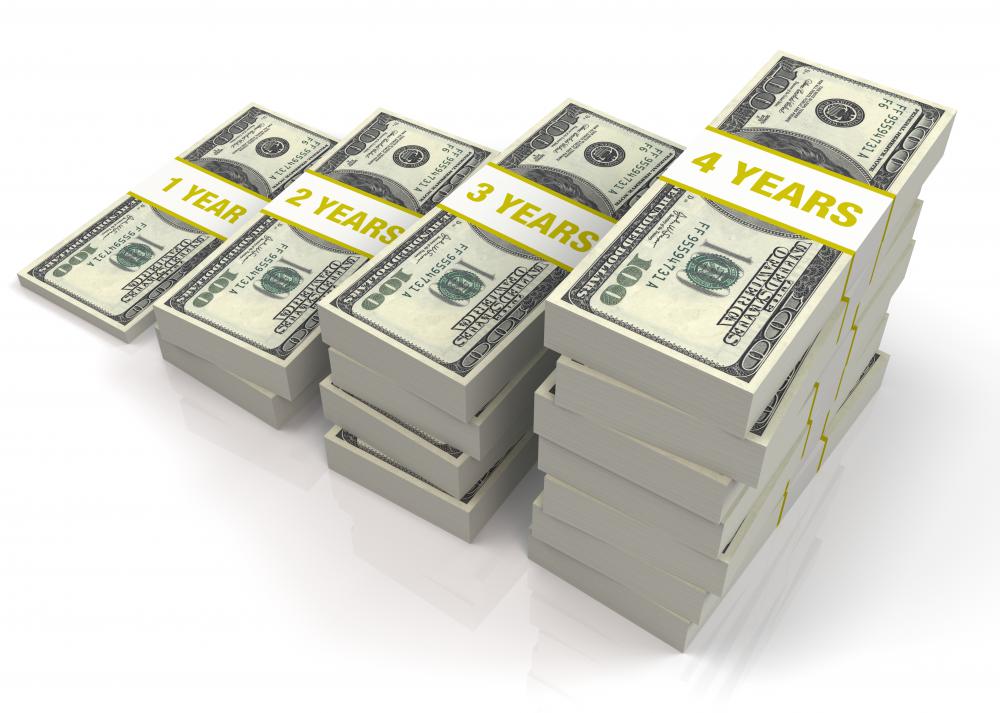At WiseGEEK, we're committed to delivering accurate, trustworthy information. Our expert-authored content is rigorously fact-checked and sourced from credible authorities. Discover how we uphold the highest standards in providing you with reliable knowledge.
What Are the Disadvantages of Monetary Policy?
Many national governments use a variety of different monetary policy tools to directly influence the economy. These policies are usually instituted to achieve a certain aim such as making borrowing less expensive or reducing inflationary pressures. The disadvantages of monetary policy include the fact that particular policies negatively impact certain individuals and businesses. Additionally, some people argue that monetary policies have a negative impact on the stock market.
When interest rates are high, borrowing costs rise and this means that mortgages and car loans are expensive and that credit cards have high interest rates. Central banks can lower rates by reducing the interest rates that banks must pay to borrow money from the government. The disadvantages of monetary policy decisions that are aimed at reducing interest rates include the fact that banks lower interest rates on deposit accounts such as certificates of deposit (CD)s in reaction to such policy moves. Banks have no incentive to pay high rates to consumers when funds can be borrowed inexpensively from the government. Therefore, savers earn less on their money and this may impact their standard of living.

During inflationary periods, national governments raise key interest rates to make credit more expensive. Often as a result, consumption and consumer spending drop. High rates result in better returns for savers but mortgages and car loans may become prohibitively expensive for other consumers. Therefore, the disadvantages of monetary policy include the fact that government agencies have to make decisions that benefit savers and negatively impact borrowers or vice versa.

Some types of investments including bonds are sensitive to interest rate fluctuations. When interest rates rise, low yield bonds drop in value but the opposite happens when interest rates rise. Consequently, one of the disadvantages of monetary policy is the fact that the national government can indirectly affect the sales of fixed yield securities. In some instances, governments use monetary policy to deliberately manipulate the bond market for the greater good of the economy but this can cause bondholders to lose money.

The value of stocks often drops during periods of recession and other times of economic uncertainty. Some investors take advantage of such situations and buy stocks at low prices with the expectation of selling those stocks for profit when the market recovers. Critics of monetary policy argue that government actions disrupt the natural ebb and flow of the free market. If a government takes steps to stabilize the market, then stocks may not rise and fall in value in accordance with market conditions. Some people argue that fears over government actions impacting the market may convince some not to invest in nations where government agencies tightly control monetary policy.
AS FEATURED ON:
AS FEATURED ON:













Discussion Comments
@ZipLine-- The Federal Reserve increases interest rates to slow down the economy. So if you were getting read to buy a car or house, you probably won't be able to. Banks will lend less and consumers will buy less to reduce money supply. This is the best way to reduce inflation but it's not great for the consumer who has to hold out on spending.
Also, high interest rates have impact on the stock exchange as well as trade. Since high interest rates increase the value of the national currency, imports will increase and exports will decrease. Investment will reduce overall.
@ddljohn-- Can you elaborate on what you said? For example, if inflation is high and the Federal Reserve increases interest rates to lower it, where is the harm in that? Not intervening is not an option, because high inflation is not good.
Monetary policy is like a double edged sword. While it fixes some parts of the economy and stabilizes things, it almost always causes harm to a different component. The only monetary policy that's harmless is a neutral one where the Central Bank or the Federal Reserve basically leaves things alone because inflation and employment rates are ideal. But this rarely happens. Either inflation is too high or too low and the Central Bank is forced to intervene.
Post your comments